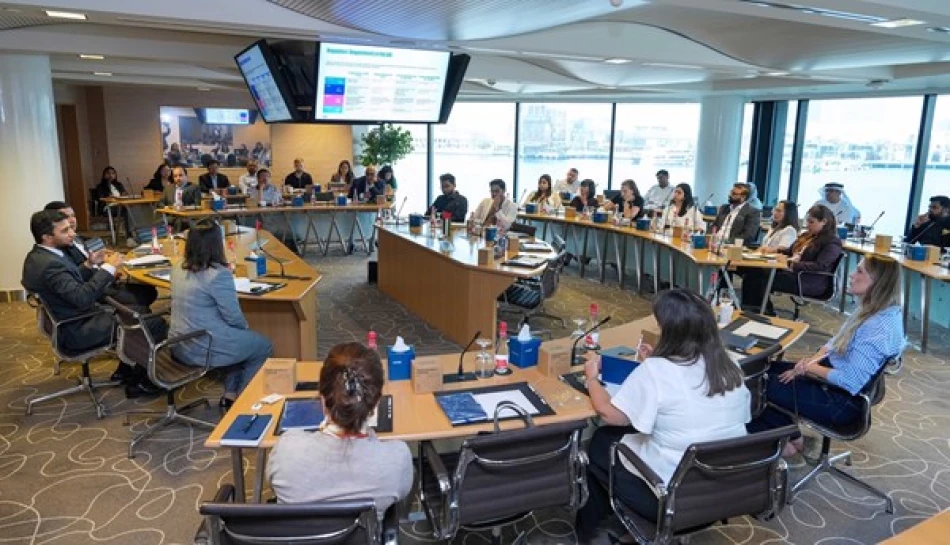
Dubai Chambers Hosts Workshops on Maritime, Governance, and Tax Regulations
Dubai Chambers Launch Strategic Business Compliance Initiative to Strengthen UAE's Corporate Governance Framework
Dubai's business community is receiving a comprehensive regulatory education boost as Dubai Chambers organized three specialized workshops targeting critical compliance areas. The initiative, drawing 111 business representatives, signals the UAE's commitment to elevating corporate governance standards and regulatory awareness across key sectors including maritime law, tax compliance, and internal controls—areas that directly impact the country's position as a global business hub.
Maritime Law Workshop Addresses UAE's Strategic Shipping Position
The first workshop, conducted in partnership with Stephenson Harwood, Freight Disputes & Legal Solutions, and the National Committee for Shipping and Supply, focused on maritime law and shipping regulations. This timing is particularly strategic given the UAE's role as a major logistics hub connecting Asia, Europe, and Africa.
Participants gained insights into the roles and responsibilities of importers and exporters, international trade terms, and letters of credit procedures. This educational push comes as global supply chains continue to evolve post-pandemic, with businesses requiring deeper understanding of maritime legal frameworks to navigate complex international trade relationships.
Why Maritime Law Matters Now
The UAE handles approximately 15 million TEU (twenty-foot equivalent units) annually across its ports, making it one of the world's top container handling nations. As trade routes shift and geopolitical tensions affect shipping lanes, companies operating in the UAE need sophisticated understanding of maritime legal protections and obligations.
Tax Compliance Takes Center Stage Under "Zero Government Bureaucracy" Initiative
The second workshop, organized with the Federal Tax Authority, addressed tax agent registration processes as part of the UAE's broader "Zero Government Bureaucracy" initiative. This reflects the country's ongoing efforts to streamline business operations while maintaining robust compliance standards.
The timing aligns with the UAE's maturing tax landscape, which has evolved significantly since the introduction of VAT in 2018 and corporate tax in 2023. Unlike many regional competitors, the UAE is positioning itself as a jurisdiction that combines tax efficiency with transparency and compliance.
Competitive Advantage Through Compliance
This approach contrasts with traditional regional tax havens that offered opacity. The UAE's strategy appears designed to attract businesses seeking legitimate tax optimization rather than avoidance, positioning it favorably against increasing global scrutiny of international tax arrangements.
Corporate Governance Workshop Addresses Global Regulatory Trends
The third workshop, partnered with KPMG, tackled governance and internal controls—areas where the UAE is catching up to international standards. The session explored resilient business development strategies through enhanced internal control frameworks and corporate governance principles.
Through case studies and practical examples, participants examined global regulatory trends and learned to design effective internal control systems. The emphasis on IT governance and developing strong control cultures reflects the UAE's recognition that sustainable growth requires robust oversight mechanisms.
Learning from Global Best Practices
The workshop's focus on global regulatory frameworks suggests the UAE is benchmarking against established financial centers like Singapore and Hong Kong, rather than settling for regional standards. This approach supports the country's ambitions to attract multinational headquarters and sophisticated financial services operations.
Strategic Implications for Business and Investment
These workshops represent more than routine business education—they signal the UAE's systematic approach to building institutional capacity. For international businesses, this suggests a jurisdiction increasingly serious about professional standards and regulatory compliance.
The initiative also indicates growing sophistication in the UAE's business environment. Companies operating there can expect continued evolution toward international best practices, which may require investment in compliance infrastructure but ultimately strengthens the business ecosystem's credibility and stability.
The comprehensive nature of these workshops—covering maritime, tax, and governance issues—demonstrates Dubai's recognition that modern business success requires multifaceted regulatory competence, not just favorable tax rates or strategic location.
Most Viewed News

 Layla Al Mansoori
Layla Al Mansoori






